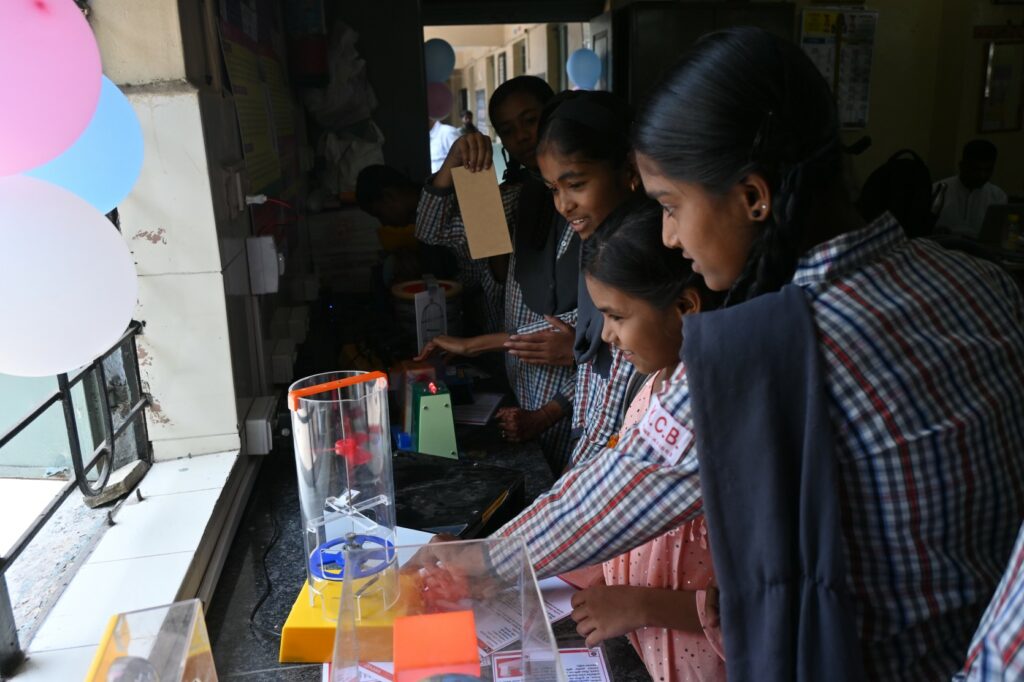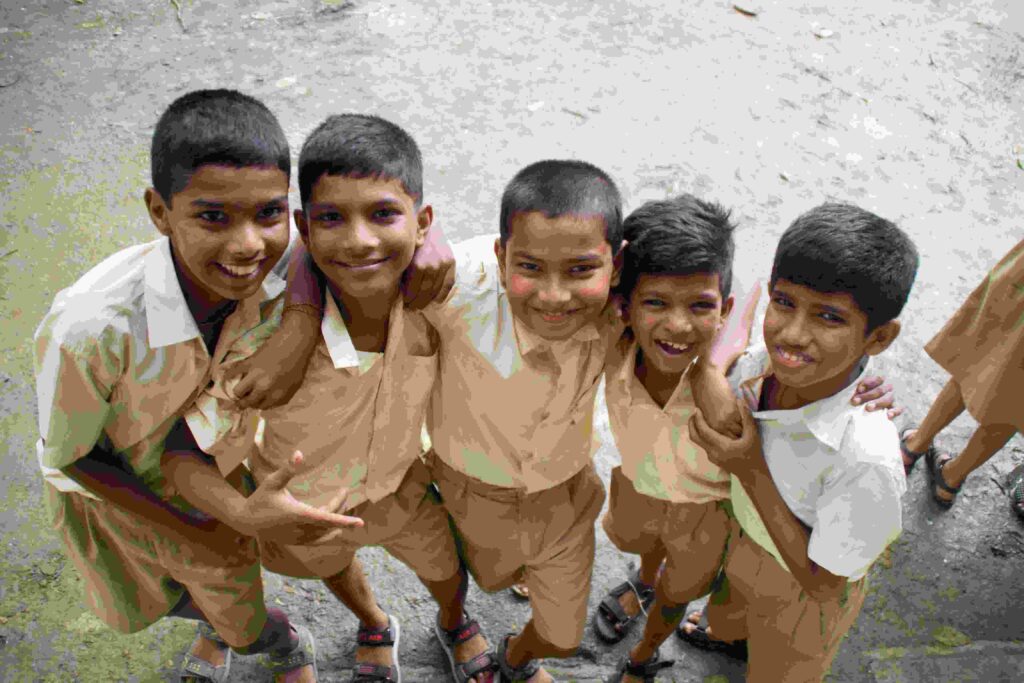
5 Benefits of Extracurricular Activities for Girls’ Personal and Academic Growth
Summary/TL;DR on Benefits of Extracurricular ActivitiesExtracurricular activities are essential for the transformation of girls' lives, particula....
Read MorePlaying is fundamental to childhood, and the Benefits of Sports for Children extend far beyond providing freedom and joy to include critical developmental milestones. The World Health Organization highlights that regular physical activity enhances physical fitness and mental well-being in children. Sports promote physical health by improving strength, stamina, and coordination through active play. They also build confidence, relieve stress, and enhance social skills, teaching teamwork and communication. Additionally, sports encourage cognitive development by fostering critical thinking and discipline, which contribute to academic success. However, access to sports remains a challenge for underprivileged children. Programs like CRY India work to empower these children through sports, providing necessary resources to help them grow, learn, and thrive in safe environments.

Playing is at the heart of every childhood memory. For many children, the sports period at school is the most anticipated time of the week, a moment of freedom, joy, and togetherness. Beyond being a source of fun, sports play an invisible yet powerful role in shaping young lives. From physical fitness to emotional resilience, teamwork to leadership, the benefits of sports for children go far deeper than we often realize. According to the World Health Organization, regular physical activity strengthens muscles and bones, supports healthy growth, and promotes mental well-being in children and adolescents.
Engaging in sports helps children stay active and healthy in their formative years. Running, jumping, or even simple playground activities strengthen bones and muscles, improve posture, and boost overall fitness. These routines not only support immediate growth but also lay the foundation for healthier lifestyles later in life.
Games such as cricket, kho-kho, kabaddi, or badminton build strength and stamina while sharpening reflexes and coordination. Regular physical activity helps children become more agile, energized, and capable of handling daily tasks with confidence. Sports prepare their bodies to grow stronger, but also give them a sense of vitality that spills over into every part of life.
Also Read: Role of Education in Human Capital and Development
Every small achievement on the playground, learning a new move, working well with a team, or simply persevering through a tough game, gives children a sense of accomplishment. These moments of growth nurture self-confidence, which positively influence how children approach academics, relationships, and future challenges.
Sports also provide a natural outlet for stress. Physical activity helps children release pent-up energy and focus their minds in positive ways. Playing regularly makes them feel lighter, happier, and more balanced emotionally, contributing to their overall well-being and resilience.
On the field, children learn how to express their ideas, listen to others, and coordinate with peers. Some step naturally into leadership roles, guiding their teams, while others find their voice through collaboration. These early experiences lay the groundwork for strong communication and leadership skills in later life.
Team sports emphasize the value of cooperation, empathy, and patience. By striving for shared goals, children learn to celebrate wins together and handle setbacks with mutual support. These qualities strengthen their ability to work with others and contribute positively to the communities they grow up in.
Also Read: Breaking the Cycle of Child Labour
Sports sharpen the mind as much as they strengthen the body. Games that involve planning or strategy, such as chess, cricket, or badminton, encourage critical thinking, quick decision-making, and focus. Active children often perform better in academics, as play improves memory, concentration, and classroom engagement.
From attending practice on time to sticking with training, sports naturally teach discipline and time management. Children also learn perseverance, to keep trying after a loss, to set goals, and to achieve them step by step. These lessons stay with them as they grow, supporting not only education but also personal development.
Also Read: STEM Activities for Kids
For many underprivileged children, access to sports is still a challenge. A lack of safe playgrounds, basic equipment, or even adequate school infrastructure can deprive them of opportunities to enjoy the benefits of play.
Kavita’s journey from the slums of Shahbad Dairy, Delhi, is a testament to the transformative power of sports. Inspired by Mithali Raj, she dreamed of playing for the Indian Women’s Cricket Team, despite living in an area notorious for crime against women and children. With immense determination, she joined the CRY project, Saksham, where she learned cricket and gained knowledge about child rights and gender equality.
Facing hostility from her community, Kavita persisted, breaking stereotypes, challenging gender inequities, and inspiring other girls to play. Her leadership led Saksham’s cricket team to win the Amul Milk Cricket Tournament and earned her personal accolades, including participation in the under-19 T20 International Championship and recognition in national tournaments.
Also Read: Child Vaccination Chart
At CRY India, we believe every child deserves equal opportunities to play, learn, and thrive. By supporting sports and play initiatives, we can provide safe playgrounds, equipment, and training programs that help children build strength, confidence, and teamwork skills. With your support, children from underprivileged communities can access the tools and opportunities they need to grow healthier, happier, and more empowered. Together, we can break barriers, nurture talent like Kavita’s, and give every child the chance to dream bigger.
Support children education through CRY India and help them stay active, develop essential life skills, and realize their full potential.
Parents can encourage children by introducing them to different activities and letting them explore what they enjoy. Regular playtime, praise, and support help children stay motivated. Experiencing the benefits of sports on physical health and learning new skills makes sports fun, building confidence and helping them stay active and healthy.
Team sports teach children to work together, share responsibilities, and communicate better. Playing with others helps children develop patience, empathy, and cooperation. These experiences show how teamwork not only improves social skills but also supports the benefits of sports on mental health, such as building confidence and reducing stress.
Through wins and losses, children learn to keep trying even after setbacks. Sports teach persistence, focus, and discipline, helping them face challenges courageously. Experiencing both success and failure highlights the benefits of sports on mental health, fostering resilience, determination, and the ability to overcome difficulties in daily life.
Being part of a team or sports group helps children feel included, supported, and valued. Shared goals and teamwork strengthen friendships and social connections. These interactions highlight the benefits of sports on mental health, giving children a sense of community and belonging while promoting positive social skills.
Also Read: Infant Mortality Rate